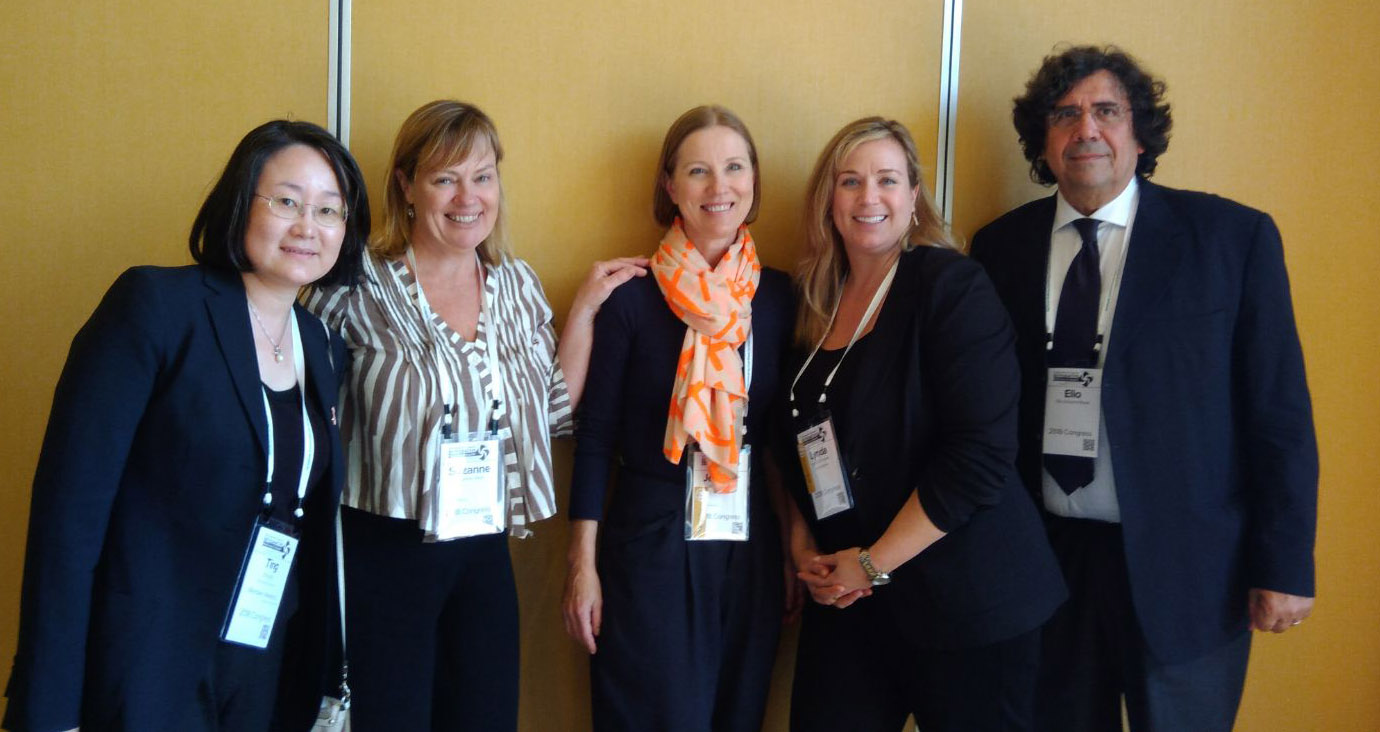Integrative oncology: international perspectives

L to R: Dr Ting Bao, Memorial Sloan Kettering Cancer Center, USA, Dr Suzanne Grant, NICM Health Research Institute, Associate Professor Jennifer Hunter, NICM Health Research Institute, Associate Professor Lynda Balneaves, University of Manitoba, Canada, Professor Elio Rossi, Campo. di. Marte. Hospital, Italy.
International researchers including NICM’s Adjunct Associate Professor Jennifer Hunter and Dr Suzanne Grant discussed the development of integrative oncology (IO) services and its implications for clinical practice, health service delivery, education, research and policy at the recent International Congress on Integrative Medicine and Health (ICIMH), held at Baltimore in the US.
IO is a new evidence-based specialty that integrates traditional and complementary medicine with conventional cancer care. IO acknowledges the increasing role that cancer survivors have in managing their own care, and the importance of a therapeutic alliance that respects the preferences and values of cancer survivors.
“Integrative oncology makes the best of all available therapies to support cancer survivors across the continuum of their cancer care,” says Associate Professor Hunter, who chaired the panel discussion, which included representation from North America, Western Europe and Australia.
Increasingly, IO services are being provided by public and private health sectors across the globe. Often however, service development is ad-hoc and fragmented, reflecting local factors rather than coordinated regional or national planning and policy.
“Some of the key take-home messages that everybody was struggling with was how we fund integrative oncology, and how we change the perception that traditional complementary and integrative medicine are just luxury add-on services. They are an essential part of care and recovery,” said Associate Professor Hunter.
While the US has a high proportion of integrative oncology-trained physicians, Associate Professor Hunter says Australia has just one or two.
“My hope is that Australia aspires to the same WHO principle of universal access to integrative oncology care. We need equitable provisions of high-quality integrative oncology services for all Australians, with a focus on regional and remote Australia, not just metropolitan areas, that are also culturally appropriate for Aboriginal and Torres Strait Islander communities and other migrant population groups,” she said.
Running in its seventh year and organised by the Academic Consortium for Integrative Medicine and Health, the international congress is one of the most anticipated of the year, attracting over 1,000 of the world’s leaders in complementary and integrative medicine.
